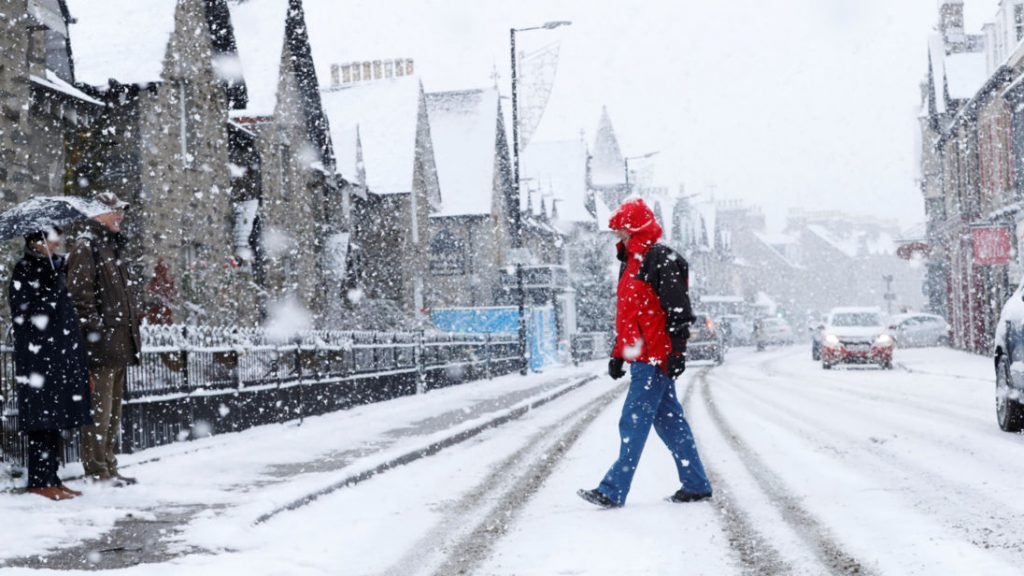Winter is set to bite this week with temperatures falling away to a possible low of -10C (17.6F) on Thursday and authorities issuing a health warning.
Snow is expected to fall in hilly areas of the country and parts of Scotland could even see -10C (14F) and yellow warnings for ice have been issued for parts of Wales, the North West and West Midlands.
The Met Office forecast comes after the UK experienced bitter temperatures at the weekend, but stayed above freezing for most.
On Sunday night, some isolated areas experienced sub-zero conditions, such as Cairnwell in the Scottish Highlands.
Cloud and rain in the south means temperatures have now risen to between 8C and 9C.
Met Office meteorologist Martin Bowles said: “We’ve got a very showery situation, with some showers coming through overnight and it’s quite cold so where you get showers and then the surface gets wet and freezes over, you can get problems with ice on pavements and roads.”
Thursday is tipped to be the coldest day of the week, with the mercury expected to fall as low as -10C (50F) in some parts.
Regarding the possibility of snow, Mr Bowles said: “All this week there’s going to be showers down the eastern side of the country, even today and tomorrow we’re likely to get some snow on higher ground, places like the North Yorkshire moors.
“And because Thursday is that much colder, there’s potential for snow a bit further south, places in East Anglia, Lincolnshire and perhaps some snow reaching city levels, such as Newcastle and Durham.”
Councillor Martin Tett, the Local Government Association’s transport spokesman, said councils are prepared for the lower temperatures.
He said: “Councils are constantly monitoring the weather, with up-to-the-minute reports to stay one step ahead.
“Depots are filled with 1.5 million tonnes of salt and gritters are ready to be deployed at a moment’s notice to make sure our local roads are clear and open to our residents where possible.”
Public Health England (PHE) has issued a cold weather alert and health warning.
Dr Thomas Waite, of PHE’s Extreme Events team, said: “As the weather is going to get colder everywhere in the coming days, this is a really good time to check on those who may be at risk.
“People with diseases such as heart and lung conditions, older people, and young children can feel the ill-effects of cold weather more than the rest of us.”
People should wear lots of thin layers instead of just a few thick items, and to keep their home heated to at least 18C.
South Western Railway warned commuters the colder weather could affect journeys.
“Ice can cause problems for trains as it can prevent trains from drawing power from the electrified rail,” said a statement on its website.
“Network Rail-run special vehicles treat our tracks to reduce the effects of the poor weather conditions and will be taking appropriate action over the next few days.”



